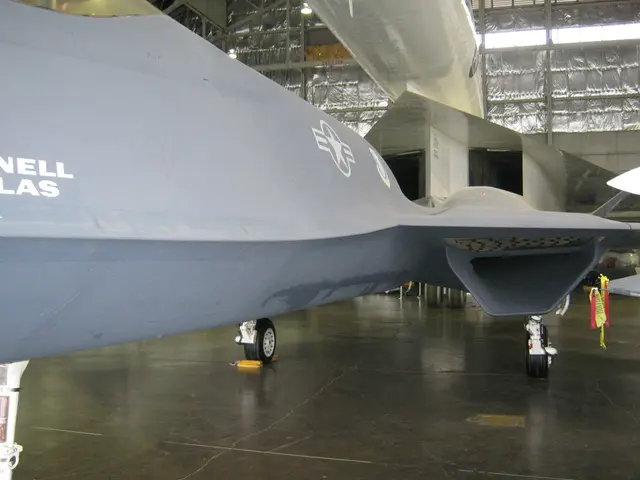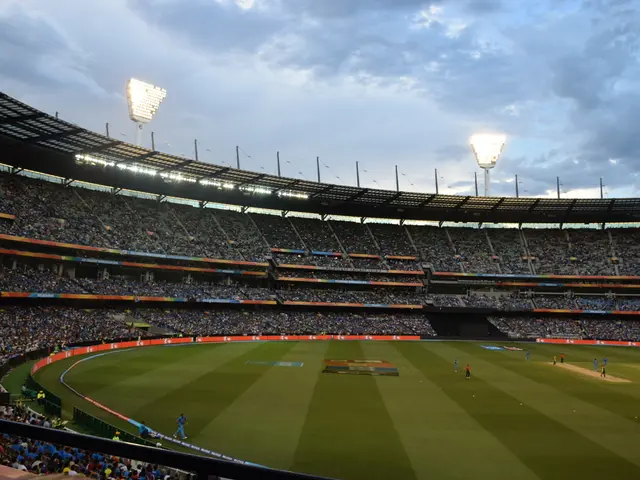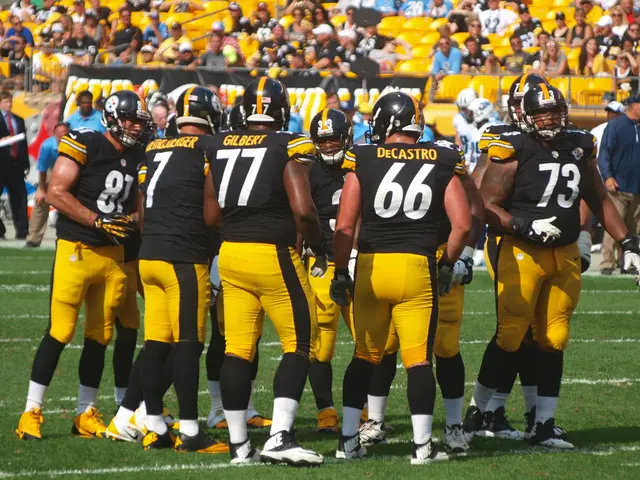Team investments in sports appear to be a secure venture, defying the economic downturn resulting from Trump's tariff measures.
🤘 checking out the sports scene, huh? It's apparently been surprisingly resilient amidst the White House-fueled market turbulence!
Despite the rocky waters from Trump's tariffs causing ripples in industries like manufacturing and agriculture, sports clubs are sticking to their valuation guns. As analysts have noted, these athletic powerhouses have remained stable, with some even seeing a rise in worth.
PitchBook's "Private Capital in Sports: PE is up to Bat" report underscores this trend, citing expanded media rights agreements as a significant driving force. Women's sports, in particular, are experiencing a growth spurt, with investments like Reddit co-founder Alexis Ohanian putting £20m into Chelsea's WSL team.
The capital floodgates are open for sports-focused funds, thanks to the asset's accessibility and immunity to tariffs. But, that's not to forget concerns over secondary effects like higher costs for merchandise or tertiary effects like national recessions due to the tariffs.
Tariffs not taking the field just yet
"Market volatility from tariffs isn't likely to eat away at sports teams' valuations, especially for those not publicly listed," says Nicolas Moura, senior EMEA private capital analyst at PitchBook, according to City AM.
He explains that sports investing looks at the long game, with holding periods averaging five to ten years. Investments in North American sports, such as the NFL, have vastly outperformed indices like the S&P 500 over the last two decades.
Although the secondary effects of potential tariffs (e.g., pricier merch) could nudge up against sports teams, they'd likely be offset by gains from broadcasting rights and increased viewership. Worrisome scenarios like national recessions are, for now, just brewing coffee in the background.
So, while other industries are frantically repositioning themselves to cope with the tariffs, sports clubs seem to be playing in a league of their own... for the time being. 🏈🏀🏒💪
- Amidst the market turbulence caused by the White House, sports seems unscathed, proving a surprising resilience.
- Despite the impact of Trump's tariffs on industries like manufacturing and agriculture, sports clubs maintain their valuations.
- Analysts attribute the stability of sports clubs to expanded media rights agreements.
- Women's sports are seeing a growth spurt, with significant investments like Alexis Ohanian's £20m into Chelsea's WSL team.
- Sports-focused funds are experiencing an influx of capital, immune to tariffs and accessible to investors.
- However, secondary effects such as pricier merchandise and potential tertiary effects like national recessions remain concerns.
- According to Nicolas Moura, private capital analyst at PitchBook, market volatility from tariffs is unlikely to affect sports teams' valuations.
- Moura notes that sports investing focuses on the long game, with holding periods averaging five to ten years.
- North American sports, such as the NFL, have outperformed indices like the S&P 500 over the last two decades.
- Although secondary effects could nudge against sports teams, gains from broadcasting rights and increased viewership may offset these costs.
- For now, while other industries reposition themselves to cope with tariffs, sports clubs maintain a unique resilience and stability.








